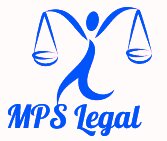Best Juvenile Law Lawyers in Dehradun
Share your needs with us, get contacted by law firms.
Free. Takes 2 min.
List of the best lawyers in Dehradun, India
About Juvenile Law in Dehradun, India
Juvenile Law in India is designed to protect and rehabilitate individuals under the age of 18 who come into conflict with the law. In Dehradun, as in the rest of India, these laws are primarily governed by the Juvenile Justice (Care and Protection of Children) Act of 2015. The aim is to provide care, protection, treatment, and rehabilitation for juveniles who are accused or found guilty of criminal activities. The law emphasizes rehabilitation over punishment and focuses on the welfare of the child. Specialized Juvenile Justice Boards are established to handle cases involving juveniles, ensuring they are provided with the necessary legal and psychological support.
Why You May Need a Lawyer
There are several situations where individuals might seek legal advice related to Juvenile Law:
- If a minor is accused of a crime, professional legal representation is crucial to navigate the Juvenile Justice System appropriately.
- Parents may require legal assistance for the juvenile's welfare and rehabilitation process.
- If there are disputes or concerns related to guardianship, custody, or adoption of a minor.
- In cases where minors have been victims of crime, legal guidance is essential to ensure their rights and safety are protected.
- When dealing with issues related to child labor, trafficking, or abuse of minors.
Local Laws Overview
In Dehradun, the Juvenile Justice Act and its corresponding rules are strictly observed. Key aspects include:
- Juvenile Justice Boards: These are established to handle cases involving minors in conflict with the law and focus on their rehabilitation.
- Observation Homes: These serve as safe spaces for detained minors during the trial process.
- Rehabilitation Measures: The law prioritizes skill development, education, and rehabilitation programs over imprisonment.
- Child Welfare Committees: For care and protection of children who are in need, including those abandoned or trafficked.
- Age Determination: Establishing the age of the accused is crucial, as it determines whether they will be treated as juveniles.
Frequently Asked Questions
1. What is the age limit for being tried under Juvenile Law?
Individuals under 18 years of age are tried under Juvenile Law.
2. How is a juvenile tried differently from an adult?
Juveniles are tried by Juvenile Justice Boards that focus on rehabilitation rather than punishment.
3. Can a juvenile be tried as an adult?
In certain grave offenses, juveniles aged 16-18 can be tried as adults, depending on the circumstances and the severity of the crime.
4. What are Observation Homes?
Observation Homes provide temporary care for juveniles during the trial process.
5. How does the rehabilitation process work?
Rehabilitation involves education, vocational training, and psychological support to reintegrate juveniles into society.
6. What role do parents or guardians play in juvenile cases?
Parents or guardians assist in rehabilitation and work with legal authorities to ensure the best outcome for the juvenile.
7. What if a juvenile is a repeat offender?
Repeat offenders receive close monitoring and tailored rehabilitation programs to address behavioral issues.
8. What protection is available for juvenile victims of crime?
Juvenile victims are protected under the law and provided with legal, psychological, and social support.
9. Who can approach the Juvenile Justice Board?
Legal guardians, social workers, and anyone interested in the welfare of a juvenile can approach the Board.
10. Can a juvenile record affect future prospects?
Juvenile records are typically sealed and do not impact future educational or employment opportunities.
Additional Resources
Several organizations and governmental bodies can be useful for those seeking guidance on Juvenile Law in Dehradun:
- State Commission for Protection of Child Rights (SCPCR)
- Child Welfare Committees in Dehradun
- Local Legal Aid Clinics
- NGOs such as Bachpan Bachao Andolan
- Helplines like Childline 1098
Next Steps
If you require legal assistance in Juvenile Law, consider the following steps:
- Contact a lawyer specializing in Juvenile Law for consultations and representation.
- Gather all necessary documents and information pertinent to your case.
- Reach out to local legal aid services if financial constraints are a concern.
- Engage with child protection agencies for resources and guidance.
- Stay informed about your rights and the processes involved in juvenile cases.
Lawzana helps you find the best lawyers and law firms in Dehradun through a curated and pre-screened list of qualified legal professionals. Our platform offers rankings and detailed profiles of attorneys and law firms, allowing you to compare based on practice areas, including Juvenile Law, experience, and client feedback.
Each profile includes a description of the firm's areas of practice, client reviews, team members and partners, year of establishment, spoken languages, office locations, contact information, social media presence, and any published articles or resources. Most firms on our platform speak English and are experienced in both local and international legal matters.
Get a quote from top-rated law firms in Dehradun, India — quickly, securely, and without unnecessary hassle.
Disclaimer:
The information provided on this page is for general informational purposes only and does not constitute legal advice. While we strive to ensure the accuracy and relevance of the content, legal information may change over time, and interpretations of the law can vary. You should always consult with a qualified legal professional for advice specific to your situation.
We disclaim all liability for actions taken or not taken based on the content of this page. If you believe any information is incorrect or outdated, please contact us, and we will review and update it where appropriate.









